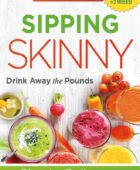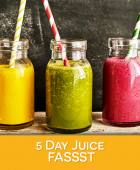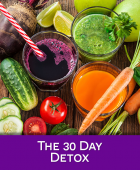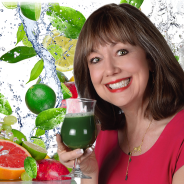HEALING BROTH FOR ARTHRITIS
This Delicious Broth Heals Arthritis, Gut Issues, & Inflammation
Bone broth is the nation’s hottest brew these days. Some people are doing bone broth fasts while others are adding it to other types of fasts such as the juice fast. The bone broth diet isn’t something new; just rediscovered. It’s been around for as long as people have boiled bones for soup stock. It’s known to reverse signs of aging, promote weight loss, increase energy, and renew vitality. This can happen in just 21 days. It can help to heal your gut because it reduces inflammation. It’s amazingly nutritious for your joints and bones.
Read MoreGluten, Joint Pain, Gut Problems, GERD, and Blood Sugar
Gluten, Joint Pain, Gut Problems, GERD, and Blood Sugar Issues
Life is filled with learning moments. My husband and I had one this week.
I have a friend who has been researching genetics as they relate to health issues. She volunteered to help my husband research his genetic profile as it relates to his health. Interesting and insightful. It seems that he has a gene that is directly related to celiac issues. That he doesn’t have, but that particular gene is also connected to mononucleosis, and so far this is the gene that is directly linked to mono. He did have a terrible case of mono several years ago. The only thing that cured him was a strict juice fast and raw foods diet for 3 weeks and adding in wheatgrass juice. He has enjoyed a beer or two in his life, and most beer has gluten. There is also a direct genetic connection to B-12 issues and blood sugar problems. He has hypoglycemia. Being low in B-12 can lead to craving beer. There’s also a link with joint pain. Going gluten free is the answer along with finding the right B-12 that his body can utilize. He’s now a believer.
 Today we know a lot about gluten sensitivity and wheat allergies—much more than at any other time in history. There are studies showing that over 2000 years ago a little girl suffered from gluten allergy causing an autoimmune disease (celiac) that killed her early in life. It was determined from analyzing isotopes in her skeleton, which was discovered off the coast of Tuscany. Now, we know that gluten sensitivity and gluten allergy can causes minor issues to major problems such as irritable bowel syndrome and celiac disease. Such problems are ever growing. Gluten intolerance has become the health issue of today. At least 70 million Americans suffer from digestive ailments related to gluten. (National Institute of Health, 2009) Symptoms range from bloating, abdominal distress to GERD, hemorrhoids, gallstones, peptic ulcers, hernias, and inflammatory conditions like Crohn’s disease.
Today we know a lot about gluten sensitivity and wheat allergies—much more than at any other time in history. There are studies showing that over 2000 years ago a little girl suffered from gluten allergy causing an autoimmune disease (celiac) that killed her early in life. It was determined from analyzing isotopes in her skeleton, which was discovered off the coast of Tuscany. Now, we know that gluten sensitivity and gluten allergy can causes minor issues to major problems such as irritable bowel syndrome and celiac disease. Such problems are ever growing. Gluten intolerance has become the health issue of today. At least 70 million Americans suffer from digestive ailments related to gluten. (National Institute of Health, 2009) Symptoms range from bloating, abdominal distress to GERD, hemorrhoids, gallstones, peptic ulcers, hernias, and inflammatory conditions like Crohn’s disease.
Gluten is in wheat, barley, and rye. It is ending up in many of the foods we eat everyday. There is considerable research being conducted now on gluten sensitivity, which is not in the category of autoimmune reactions, but still produces symptoms such as fatigue, brain fog, lowered immunity, joint pain, and headaches. It is estimated that more than 18 million Americans may be gluten sensitive. Then there is also another component of wheat that has nothing to do with gluten—amylase trypsin inhibitors (ATIs). They are potent stimulators of the immune system and can cause immune cells to release inflammatory molecules, including Interlukin-8 (IL-8) and tumor necrosis factor-alpha (TNF-a).
The takeaway for today? Wheat (or gluten) allergy or sensitivity is a bonafide allergic reaction to foods containing wheat, barley, or rye. Wheat is one of the top eight food allergens in the U.S. Symptoms include swelling, itching, irritation of the mouth or throat, hives, headaches, bloating, sneezing, itchy and watery eyes, cramps, nausea, diarrhea, digestive issues, food cravings, and a depressed immune system. The answer is to go completely gluten free. Everyone I’ve worked with who has health issues and has eliminated gluten has felt better. Why not give it a try?
Read MoreCoffee and GERD
Coffee and GERD
There are several good reason to ditch coffee. First off, it stimulates hydrochloric acid (HCL) production. This can be a problem because HCl should only be produced to digest meals. If your body has to make HCl more often in response to coffee, it may have difficulty producing enough to deal with a large meal. Protein digestion in particular is affected by a deficiency of hydrochloric acid in the stomach. This can be a contributor to acid reflux (GERD), which is often caused by low stomach acid. Then antacids are about the worst thing you can take.
Also, acid reflux and heartburn can be caused by coffee due to the way it relaxes the lower esophageal sphincter. This small muscle should remain tightly closed once you’ve eaten to prevent the contents of your stomach from splashing back into the esophagus and burning its delicate lining with hydrochloric acid. Even using decaf coffee regularly causes heartburn problems for some people and researchers think this may be due to other compounds in coffee which can contribute to acid reflux problems.
And if that’s not enough to deter you, drinking coffee for energy turns into a kind of jittery tension that is always on and makes it difficult to relax. Turning on the stress hormones with a cup of coffee when you’re eating also interferes with the digestive process. It can put you in a ‘fight or flight’ mode, and cause you to crave simple carbohydrates for fuel so you can fight or run from the enemy. But we don’t usually run today because we don’t actually have a tiger or a bear chasing us, so all those carbs just turn to fat.
Also, did you know that coffee is among the most heavily pesticide sprayed crops in the world? According to the CS Monitor, conventional farmers apply up to 250 pounds of chemical fertilizers per acre! Pesticides contribute to a wide range of health problems, including prostate and other types of cancers, Parkinson’s disease, and miscarriages in pregnant women.1 Most people have far more than a small or occasional cups of high quality coffee, and often go for instant coffee, or even worse, that murky brown stuff out of an office coffee machine or vending machine. This is anything but good quality coffee and probably never organic. Drink green tea instead.
Notes
1 http://articles.mercola.com/sites/articles/archive/2010/01/30/if-you-drink-coffee-make-sure-it-is-organic.aspx accessed accessed 8/25/15
Read MoreHealing for GERD
Healing for GERD
Acid reflux affects up to 50 percent of people in the U.S. GERD, which is also known as heartburn, is a burning sensation that starts behind the breastbone and can travel up your throat. It is thought to be caused by excessive acid in the stomach, which is why acid-blocking drugs are prescribed. However, this is a misconception that has harmed millions of people.
Acid reflux occurs when the lower esophageal sphincter relaxes inappropriately, allowing acid from your stomach to flow (reflux) backward into your esophagus.
One of the most commonly prescribed drugs for heartburn and acid reflux are proton pump inhibitors (PPIs), which are very effective at blocking acid production in your stomach.
While that may sound like an appropriate remedy, considering the fact that stomach acid is creeping up your esophagus, in most cases it’s actually the worst approach possible, as a major part of the problem is typically related to too little stomach acid. It only temporarily treats the symptoms. PPIs like Nexium, Prilosec, and Prevacid were originally designed to treat a very limited range of severe problems. According to Mitchell Katz, director of the San Francisco Department of Public Health, who wrote an editorial on this topic four years ago, proton pump inhibitors (PPIs) are only warranted for the treatment of:
• Bleeding ulcers
• Zollinger-Ellison syndrome (a rare condition that causes your stomach to produce excess acid)
• Severe acid reflux, where an endoscopy has confirmed that your esophagus is damaged
The answer to heartburn and acid indigestion is to restore your natural gastric balance and function. When you eat processed foods, sugars, and drink coffee and alcohol, it can exacerbate acid reflux as it will upset the bacterial balance in your stomach and intestine. You should eat plenty of vegetables and other high-quality, organic, unprocessed foods. Also, eliminate food sensitivities from your diet. Common culprits here include caffeine, alcohol, and nicotine products.
Make sure you’re getting plenty of beneficial bacteria in your diet. It will also aid in proper digestion and assimilation of your food. You can get probiotics from fermented foods. If you aren’t eating fermented foods, you most likely need to supplement with a probiotic on a regular basis. Ideally, you’ll want to include a variety of cultured foods and beverages in your diet, as these foods will inoculate your gut with a variety of different microorganisms. Fermented foods include:
• Fermented vegetables
• Chutneys
• Cultured dairy, such as yoghurt and kefir
Other effective strategies include using unprocessed salt such as pink Himalayan salt or sea salt, which will help your body produce more hydrochloric acid (HCL). Sauerkraut and cabbage juice are the best options to help your body produce HCL. You can also improve the acid content of your stomach by taking one tablespoon of raw unfiltered apple cider vinegar in a large glass of water about 15 minutes before a meal. If this helps you, then also take Betaine HCL (available at health food stores) with your meals. One tablespoon of baking soda mixed in a glass of water will ease heartburn. Also, aloe vera juice is very helpful. Drink ginger root or chamomile tea as well.
Adapted from http://articles.mercola.com/sites/articles/archive/2014/04/28/acid-reflux-ulcer-treatment.aspx
Read More








